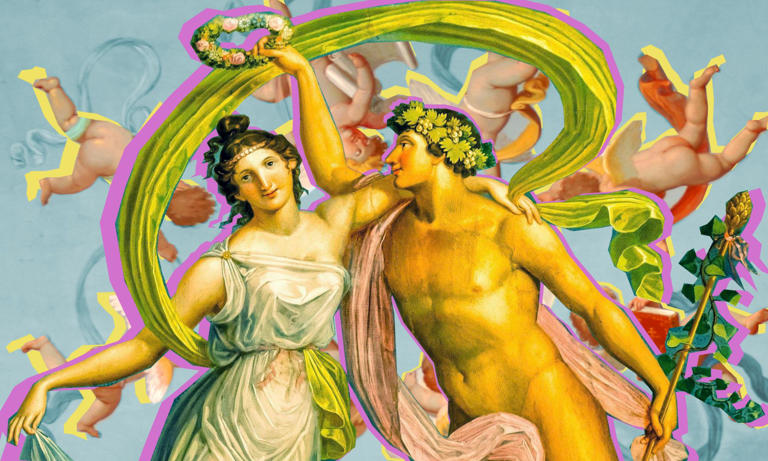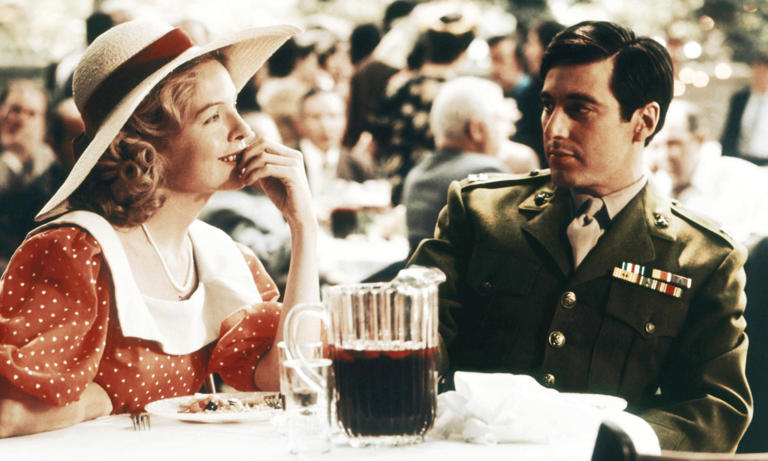
‘My parents’ bitter divorce was a lesson for me’
My parents had the most acrimonious divorce of anyone I know. Years of rage culminated in a decision to live on opposite sides of the world. I never heard my parents speak well of each other. The unexpected silver lining of this experience was that, when my marriage of 15 years was coming to an end, I knew how not to do it.
Our children were 12 and 14 and we presented it to them in a way that we hoped they would understand: that we had really loved each other and were so glad we got married and had them, but that sometimes love can change to friendship. My parents never framed their divorce in a way that was age-appropriate for me, and so I was glad that I was able to give my children the story I had wished for.
The arrangements also reflect what I would have wanted as a child: as much stability as possible. The children live in the family home with me, and their father lives nearby so that they can see him regularly. We spend Christmases, birthdays and special family occasions together, but holiday separately and step in to “babysit” for each other when we need to. We get along and, most importantly, we speak well of each other. Always.
Emma Clark, 46, Reading
‘We held a closing ceremony’
My ex-partner and I were together for four years, three of which were polyamorous. We were new to that world, and we navigated it as best we could given our inexperience, dealing with neurodivergence, and bouts of depression and anxiety. We moved in together during the pandemic but it wasn’t the right thing for us. Between lockdowns, I met someone else and began dating them. My ex-partner and I had agreed that this was OK, but my feelings for this new person showed me that things needed to end with my ex.
It was very painful and very sad, and he had to move out of our flat. Before he did, we put aside one night to spend together as a sort of “closing ceremony”. We went to the beach and lit a fire, then came home, drank wine and repotted the spider plant babies that had been sprouting from our shared plant. We told each other all the things that we had loved about the relationship, all the ways in which we had grown thanks to the care of the other.
Afterwards, we prioritised our friendship. We continued to be open with each other about our thoughts, feelings and struggles, even when that was uncomfortable. We had good weeks and bad weeks, and there have been times along the way when my commitment to the friendship may have waned. But we stuck to it and three years on we are still very close, perhaps the closest we’ve ever been.
Stella, 31, Brighton
‘We withdrew emotionally from each other’
When my-ex husband and I split up, my daughter was two years old and we tried hard to do it in the best way we thought possible. Nine years later, as I meet other people affected by divorce, I’ve realised that our experience is unusual.
We put our daughter at the centre of our minds and did what was best for her. But we also withdrew completely from each other except for factual and practical discussions. It sounds cold, but that is what was needed at the time.
You can’t be the other’s emotional support during a break-up – that sends horrible mixed signals. You may want to make them feel better but they need to lean on others for that and learn to live without you. It is important to agree on boundaries for communication straight away, such as one email a day that sticks to facts. Write that angry letter to them but don’t send it. If you receive an angry letter, be magnanimous and delete it.
Kate, 44, Cheltenham
‘People change – they don’t become bad’
My ex-wife and I met in 2001 and separated in 2017, but we have remained friends and spend time together with and without our kids. Now, we both have new partners and all operate as an extended family. We “arranged” our divorce so that the decree absolute came through on our wedding anniversary, as it made us laugh. She was a witness at my wedding.
Related: Divorce doulas: ‘like having that best friend you’ve always wanted, but you’re paying for’
My advice? Don’t fall into the trap of believing that you can’t separate amicably. People change over time in a relationship and that may make you incompatible, but it doesn’t mean they are a bad person. Try to be proud of the person they have become, and the part you played in that. Wish them happiness and don’t begrudge them finding it.
Giles Batchelor, 41, Kettering
‘Stay away from lawyers as long as you can’
After 15 years, my wife and I split up. There was no fire left; we were living as roommates. She stayed in our house: I didn’t ask for money and ended up living in several friends’ homes for about 18 months before I was able to arrange a decent place to live. Ten years later, when I really needed it, she paid me what she owed. We still see each other a couple of times a year. I know she will be there when I need it; she knows that I will be there as well.
If you can’t agree on how to divide your belongings, try to get a friend you both trust to help out. If there are some things you are emotionally attached to, ask for those and let your partner have the rest. Stay away from lawyers as long as you can: most of them are just in it for the money. Of course, if nothing else can be done, fight like hell for the rights of your kids, then fight for your rights.
Theo Veltman, 67, Amsterdam
‘We showed our son we were still friends’
I split with my long-term partner when our son was four. Our main thought was that we didn’t hate each other. The break-up was nobody’s fault – we’d just grown apart. We felt what was most important was for our son to grow up seeing his parents being friends, making joint decisions on things that affected him, and even taking family holidays together every year while our son was young. Not only did we successfully raise our son, we gave him a road map of how adults can and should behave around children.
When my ex became unwell three years ago, I discovered I was still his next of kin. I visited him in hospital while he was in a coma. When he died, my current partner and his mum gave money to help me pay for his funeral, because they knew how much he meant to me.
Kal Bird, 51, Salford
‘We always ensured each other’s wellbeing’
Our divorce attorneys, both women, said we were the model couple for separating amicably. We had agreed to a financial deal prior to even meeting them, and so all it took was to sign the paperwork. But as a gay couple, we had to undo not only the marriage, but a civil union and two domestic partnerships from the various states we had lived in. This made things more complicated: queerphobia had harmed us all our lives, but we had no idea it would be a problem during our divorce, too. Both of us now have new partners and are happy. Our guiding force was simple: ensure the other’s wellbeing, financially and emotionally, at all times.
Anonymous, 61, New York
‘I didn’t want to hate the woman I once loved’
Related: ‘I think I was relieved’: life on the other side of mature age divorce
My wife and I separated 27 years ago. It was always going to happen and we had only stayed together for several years for the sake of the children and financial stability. After the break-up, I undertook constellation therapy [looking into family history], which enabled me to understand that it was important for our two children’s wellbeing that their parents still liked each other.
At first I had to grit my teeth to do it but I always sent birthday cards, a gift at Christmas and enquired how their mother was. By the time we were both settled with new partners, it seemed unreasonable to hate the woman I had once loved and who was the mother of my children.
Stephen Cooke, 72, Bordeaux, France
‘There was no blame apportioned’
I ended my marriage 11 years ago after finding out my husband had been cheating with men. It was the need to be tested for STIs that meant he had to tell me about his sexual activity: thankfully we were both clear. I also found out that he had put thousands of pounds of debt on my credit card.
I’m not sure how it remained amicable but we never shouted at each other or argued over material things. There was no blame apportioned. We kept in touch and I tried to be a friend while he went through counselling and sorted his life out. We don’t talk often but have bumped into each other – it was nice to see him.
I have learned a lot about myself in the process. I am proud that throughout the whole thing I didn’t put anything on social media about it.
Lou, 48, Cambridge
Story by Interviews by Sarah Phillips: The Guardian:










